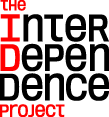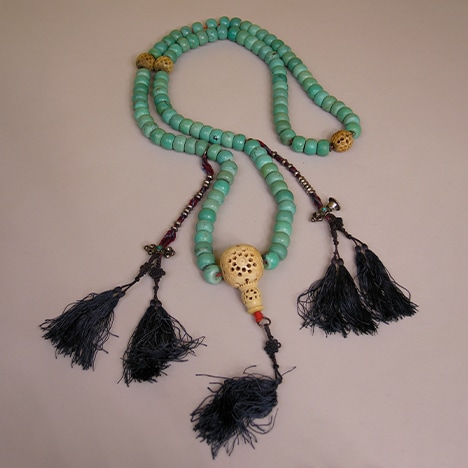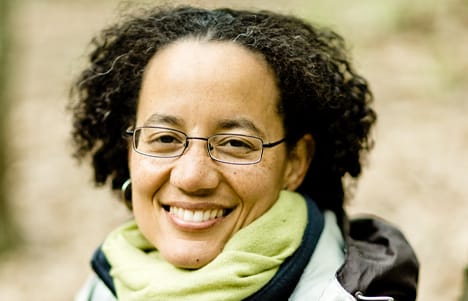
Theme: Gratitude
About the Meditation
Meditation session led by Kaira Jewel Lingo.
The guided meditation begins at 19:12.
For centuries Himalayan practitioners have used meditation to quiet the mind, open the heart, calm the nervous system, and increase focus. Now Western scientists, business leaders, and the secular world have embraced meditation as a vital tool for brain health.
Whether you’re a beginner, a dabbler, or a skilled meditator seeking the company of others, join expert teachers in a 45-minute weekly program designed to fit into your lunch break. Each session is inspired by a different work of art from the Rubin Museum’s collection and includes an opening talk, a 20-minute meditation session, and a closing discussion.
This program is supported with thanks to our presenting partners Sharon Salzberg, the Interdependence Project and Parabola Magazine.


Related Artwork

In Tibetan Buddhism prayer beads are used to count the recitations of prayers and devotional invocations (mantras), a process that allows the practitioner to accumulate merit””the more recitations, the more merit accrued. This strand has a standard 108 beads, an auspicious number rooted in early Buddhist literature on prayer beads and pre-Buddhist Indian beliefs but also symbolic of purifying the 108 causes of negative karma.
Prayer beads are religious objects of a particularly personal nature, and so the materials often reflect both the status and taste of the beads’ owner. This set, with its precious stone and metal and intricately carved bone, once belonged to a princess of Derge in southeastern Tibet.
About the Speaker

Kaira Jewel Lingo is a Dharma Teacher with a lifelong interest in blending spirituality with social justice. Her work continues the Engaged Buddhist movement developed by Thich Nhat Hanh, and she draws inspiration from her parents’ stories and her dad’s work with Martin Luther King, Jr. After living as an ordained nun for 15 years in Thich Nhat Hanh’s monastic community, Kaira Jewel now teaches internationally in the Zen lineage and the Vipassana tradition, as well as in secular mindfulness, at the intersection of racial, climate, and social justice with a focus on activists, Black, Indigenous, People of Color, artists, educators, families, and youth. Based in New York, she offers spiritual mentoring to groups and is the author of We Were Made for These Times: Ten Lessons in Moving through Change, Loss and Disruption from Parallax Press.
Her teachings and writings can be found at www.kairajewel.com.
